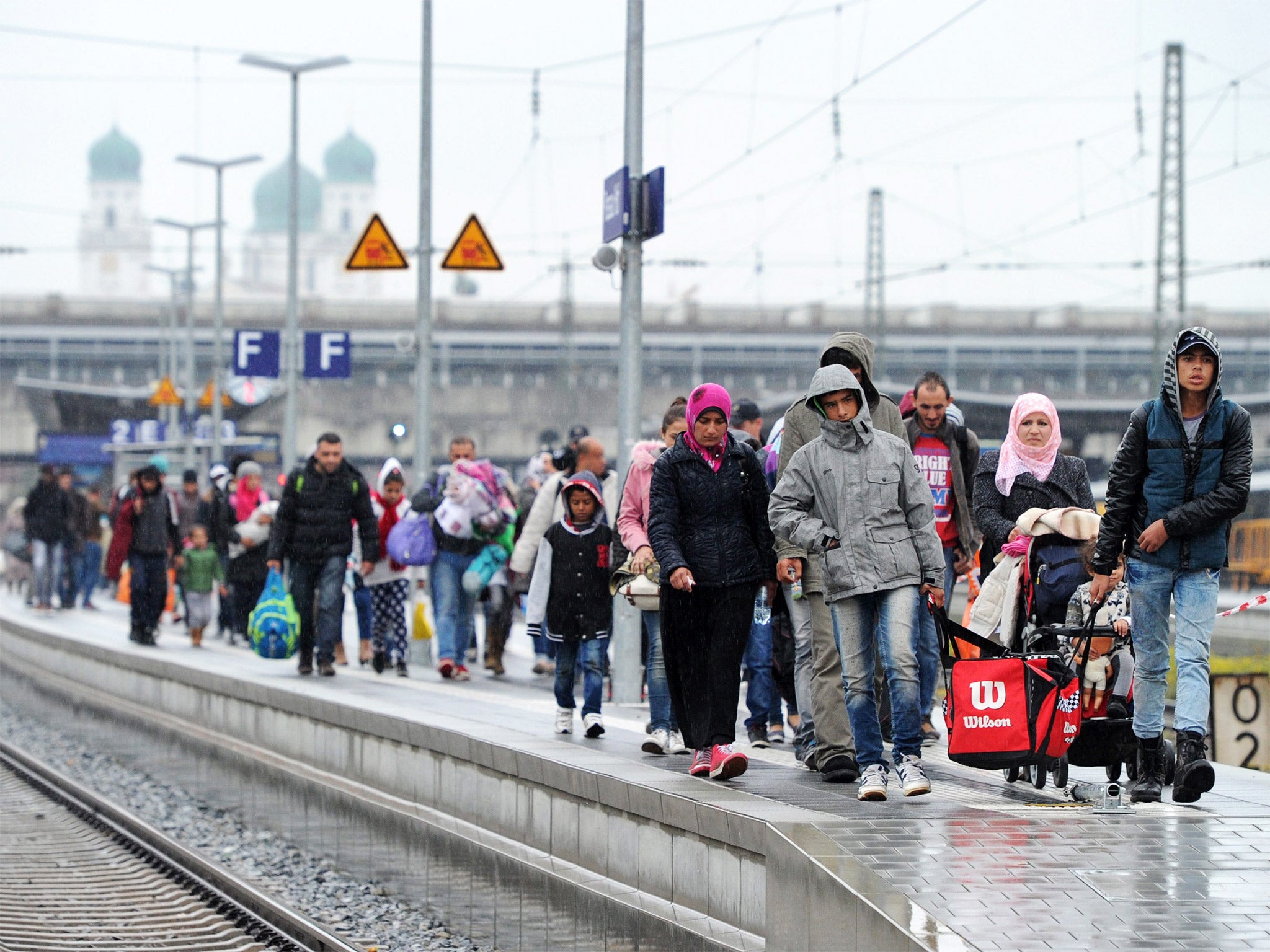Germany doubles number of suspected Islamist militants under investigation after entering during refugee crisis
Intelligence agencies have previously warned that Isis has attempted to exploit the refugee crisis

German authorities are investigating the possible arrival of 40 Islamist militants among more than 1.1 million asylum seekers who have travelled to the country during the refugee crisis.
The country’s federal police agency, the Bundeskriminalamt (BKA), said it had received 369 reports of possible extremists and found that little over a 10th of the cases warranted further investigation.
The number of suspects is more than double that announced in January, when there had been 213 warnings and 18 investigations were underway.
“German security officials have indications that members and supporters of terrorist organisations are being smuggled in with refugees in a targeted, organised way in order to launch attacks in Germany,” a spokesperson for the BKA said.
“More attacks by Islamist terror cells cannot be ruled out.”
Several of the Isis militants who carried out the Paris attacks are believed to have passed through Germany on their return from Syria, when they used the Western Balkan refugee route from Greece into Europe travelling on fake documents.
Investigators believe that two more jihadists were meant to join the massacres that killed 130 people but were prevented from reaching their target when they were detained at a refugee centre in Salzburg, Austria.
There is also evidence that Salah Abdeslam, believed to be the lone surviving suspect from the bombings, picked up co-conspirators in the southern German city of Ulm in October last year.

One of his passengers, Osama Krayem, has been charged with “terrorist murder” in both the Paris and Brussels attacks and stands accused of buying the suitcases used for the Brussels Airport bombs and helping Metro bomber Khalid el-Bakraoui.
Another man in the car known only under the aliases Amine Choukri and Monir Ahmed Alaaj, was arrested with Abdeslam and has been also charged with terrorist killings.
Several suspected Islamists have been arrested in Germany since the atrocities. In early February, a 35-year-old Algerian man and his wife were detained at a refugee centre in the town of Attendorn.
The man, a suspected Isis member, reportedly posed as a Syrian when he entered Germany in the autumn.
Days later, a 32-year-old man was arrested in the city of Mainz on suspicion of having fought with the militant group in Syria before travelling to Germany via Turkey.
Hans-Georg Maassen, the head of Germany's domestic intelligence agency (BfV), said the so-called Islamic State was attempting to “send a political signal” by using the refugee route to stoke fears and mistrust in Europe.
“I am not telling you a secret when I say that I am concerned about the high number of migrants whose identities we don't know because they had no papers when they entered the country,” he said.
The number of refugees Germany reached peaks of more than 10,000 a day last autumn but has fallen dramatically in recent months due to the closing of the Greek border with Macedonia and a deal between the European Union and Turkey that allows failed asylum seekers to be deported back over the Aegean.
The reduction in the numbers has eased pressure on Chancellor Angela Merkel, who came under fierce criticism for welcoming hundreds of thousands of those fleeing war and persecution in the Middle East under the slogan “we can do this“.
At least 800 Germans are believed to have joined Isis and other terror groups as foreign fighters, including a man who revealed the reality of life in the “caliphate” in an exclusive interview with The Independent.
Additional reporting by Reuters
Join our commenting forum
Join thought-provoking conversations, follow other Independent readers and see their replies
Comments